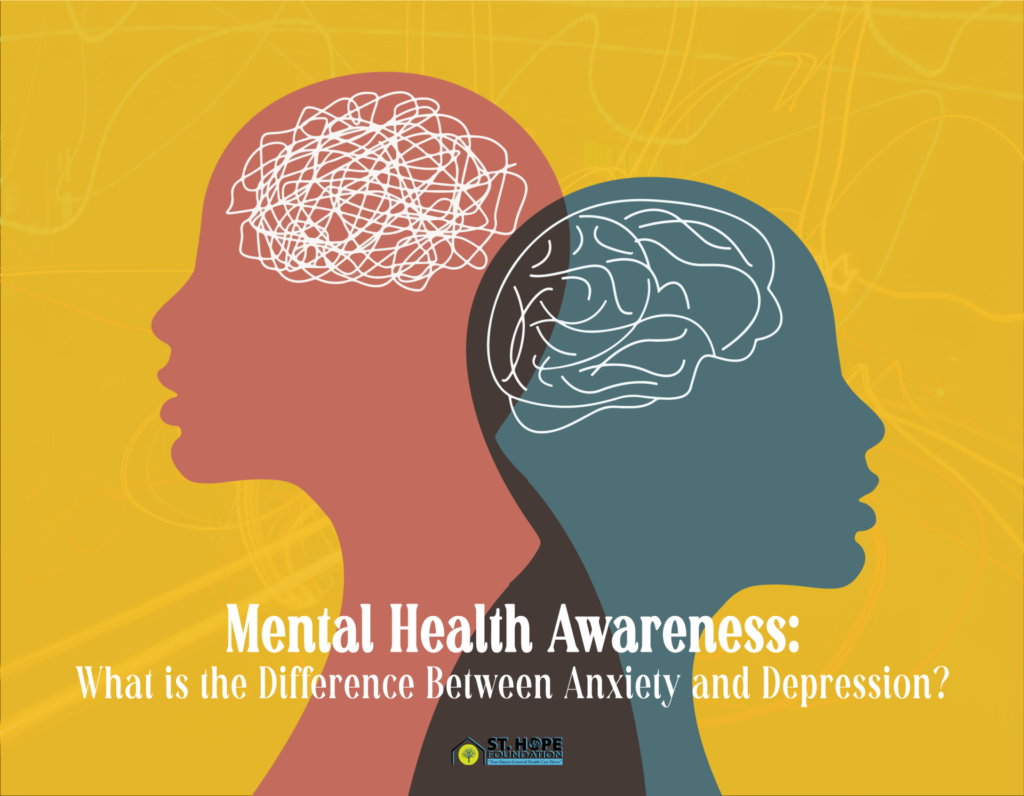In recent years, the world has witnessed a significant increase in mental health issues, particularly anxiety and depression. This crisis has been exacerbated by various factors, including the COVID-19 pandemic, economic instability, and social isolation. Understanding the underlying causes and potential solutions is crucial for addressing this growing concern.
The Impact of COVID-19 on Mental Health
The COVID-19 pandemic has had a profound effect on mental health globally. Lockdowns, social distancing, and the fear of illness have led to increased feelings of anxiety and depression among individuals of all ages. Studies have shown that the prevalence of anxiety disorders has surged, with many people reporting heightened stress levels and feelings of uncertainty about the future.
Moreover, the pandemic has disrupted routine healthcare services, making it difficult for individuals to access mental health support. This lack of access has further contributed to the deterioration of mental health for many, highlighting the urgent need for effective interventions and support systems.
The Role of Social Media in Mental Health
Social media has become an integral part of daily life, but its impact on mental health is a double-edged sword. While it can provide a platform for connection and support, excessive use can lead to feelings of inadequacy, anxiety, and depression. The constant comparison to others’ curated lives can exacerbate feelings of loneliness and low self-esteem.
Furthermore, cyberbullying and negative interactions on social media platforms can significantly affect mental well-being. It is essential to promote healthy social media habits and encourage users to engage in positive online interactions to mitigate these adverse effects.
Economic Factors Contributing to Mental Health Issues
Economic instability, including job loss and financial insecurity, is a significant contributor to mental health issues. The stress associated with financial difficulties can lead to increased anxiety and depression, creating a vicious cycle that is hard to break. Individuals facing economic hardships often lack access to mental health resources, further compounding their struggles.
Addressing economic disparities and providing support for those in need is crucial for improving mental health outcomes. Initiatives such as job training programs and financial counseling can help alleviate some of the pressures that contribute to mental health crises.
Stigma Surrounding Mental Health
Despite growing awareness, stigma surrounding mental health issues remains a significant barrier to seeking help. Many individuals fear judgment or discrimination, which can prevent them from accessing necessary support. This stigma can be particularly pronounced in certain cultures, where mental health issues are often viewed as a sign of weakness.
To combat this stigma, public awareness campaigns and education are essential. By fostering open conversations about mental health, society can create a more supportive environment that encourages individuals to seek help without fear of judgment.
The Importance of Early Intervention
Early intervention is critical in addressing mental health issues before they escalate. Recognizing the signs of anxiety and depression early on can lead to more effective treatment and better outcomes. Schools, workplaces, and communities should implement programs that promote mental health awareness and provide resources for early intervention.
Training educators and employers to identify mental health concerns can create a supportive environment where individuals feel comfortable seeking help. Additionally, integrating mental health education into school curricula can equip young people with the tools to manage their mental well-being.
Access to Mental Health Resources
Access to mental health resources is a significant challenge for many individuals. Barriers such as cost, lack of availability, and geographical limitations can prevent people from receiving the help they need. Telehealth services have emerged as a valuable solution, providing remote access to mental health professionals.
Governments and organizations must prioritize funding for mental health services and ensure that resources are accessible to all, regardless of socioeconomic status. Expanding telehealth options can also help bridge the gap for those in underserved areas.
The Role of Community Support
Community support plays a vital role in mental health recovery. Strong social networks can provide individuals with a sense of belonging and reduce feelings of isolation. Community programs that promote mental health awareness and provide support groups can be instrumental in helping individuals cope with anxiety and depression.
Encouraging community engagement and fostering connections among individuals can create a supportive environment that promotes mental well-being. Initiatives such as peer support programs and community mental health events can help build these essential
| Aspect | Description |
|---|---|
| Overview | The global rise in anxiety and depression has become a significant public health concern, affecting millions of individuals across various demographics. |
| Statistics | According to the World Health Organization (WHO), the prevalence of anxiety and depression has increased by over 25% during the COVID-19 pandemic. |
| Causes | Factors contributing to this rise include social isolation, economic instability, and the impact of digital technology on mental health. |
| Symptoms | Common symptoms include persistent sadness, loss of interest in activities, fatigue, and difficulty concentrating. |
| Impact | The mental health crisis has far-reaching effects on individuals’ quality of life, productivity, and overall societal well-being. |
| Interventions | Effective interventions include therapy, medication, community support programs, and promoting mental health awareness. |
| Prevention | Preventive measures focus on early intervention, education, and creating supportive environments to foster mental well-being. |
| Global Response | Governments and organizations are increasingly recognizing the need for comprehensive mental health policies and resources. |




